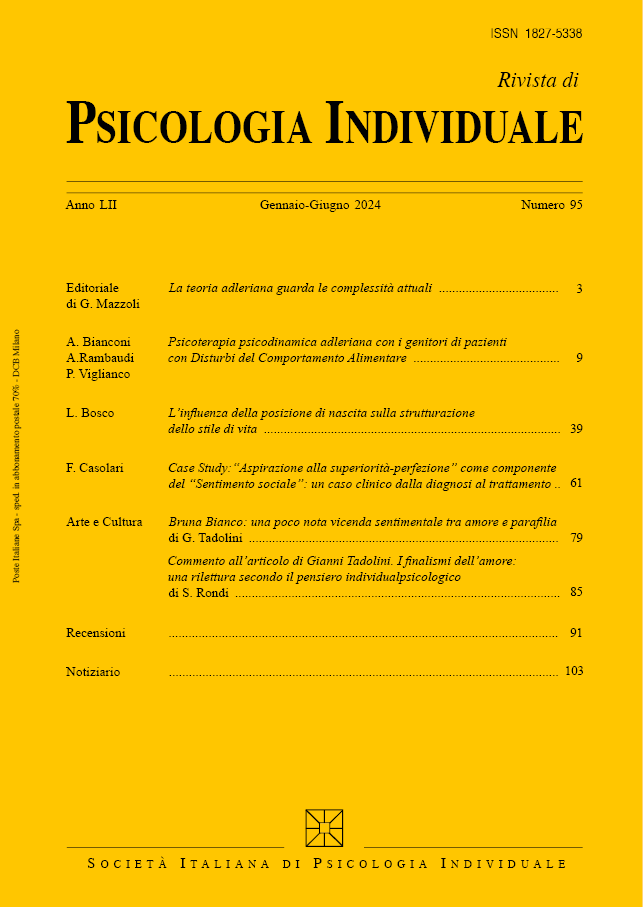THE DREAM BETWEEN NEUROSCIENCES AND PSYCHOTHERAPIES: A POST MODERN DEBATE
Keywords:
dream, neurosciences, psychotherapies, postmodernity, sogno, post modernità, approccio comprensivo esplicativo, psicologia individuale, psicologia adleriana, neuroscienzeAbstract
Studies on dream,in its structural, functional and interpretive aspects, as is well known, were undertaken systematically over a century ago. In the last decades, thanks to neurobiological researches and closer examination of various theories of the mind, investigations into the area of dreams have become more important in psychotherapeutic practice, and this even more so since the effectiveness of such cures has been demonstrated. Now the dream has been reproposed as one of the pillars of psychotherapeutic procedures. This is true whether we consider its work as an interpreter, or its role as the revealer of the internal world (from regression to censure); or its role as “communication” in the relational interplay (in a sort of “shared theatre”); or through its part in a deepening of the system of “self-identity”; or as a consequence of the cultural context’s impact. Individual Psychology Compared: thanks to the “Network Work Model” end the “explicative-comprehension” can be linkened critically to transcultural paradigms. It can usefully suggest certain suppositions, as for example: modifications in dream content in a possible correlation with postmodern deconstruction; an empathic involvement of therapist and patient (underpinned by a plurality of “value trends”); and the type of “counter– approach” be it neutral, self-identifying inter-individual (enactment). The progress of research, both into mind and brain, should be contextuable, correlatable and reasonable, thanks also to innovative criteria in psychotherapeutic models






